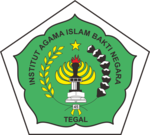Bimbingan dan Konseling dalam Perspektif Pendidikan: Aktualisasi Peran Bimbingan dan Konseling dalam Pendidikan Indonesia
DOI:
https://doi.org/10.62490/latahzan.v15i2.347Keywords:
Education, Guidance, CounselingAbstract
Education is a conscious and planned effort to create an atmosphere and learning process so that students actively develop their potential. Indeed, the existence of counseling guidance has a major function in developing human resources. All forms of deviations that we often hear today become a concern for the decline in social quality and character of this nation's generation in the future. The purpose of this study is to determine the importance of counseling guidance in the perspective of education and the role of guidance and counseling in education in Indonesia. The research method used is qualitative with the type of library research. The data reviewed in this paper is secondary data obtained through literature study. The subject of counseling is human, the existence of globalization has an impact on increasing human needs and desires to pursue various things that are offered and promise something better. The result of this research is that counseling guidance is a process of providing assistance provided by an expert (mentor teacher) continuously to an individual or a group of individuals (students), to prevent or overcome problems that arise with various potentials owned, so that they can achieve optimal development and can plan a better future, make adjustments to their environment and achieve their welfare. life. Cultural, psychological, educational and environmental aspects are important in the study of counseling and counseling guidance. Character building is one of the goals of national education. Schools from kindergarten to college have a central role in developing and instilling character values. Extra-curricular activities in schools that have been organized by schools are one of the good media for fostering the character of students.
References
Tim Citra Umbara. 2012. Undang-Undang R.I Nomor. 20 Tahun 2003 Tentang SISDIKNAS dan Peraturan Pemerintahan R.I. Tahun 2010 Tentang Penyelenggaraan Pendidikan Serta Wajib Belajar. Bandung: Citra Umbara.
Djumransyah. 2006. Filsafat Pendidikan. Malang: Banyumedia.
Yusuf, Syamsu & Nurihsan , Juntika. 2005. Landasan Bimbingan Dan Konseling. Bandung: Remaja Rosdakarya.
Syafaruddin, dkk. 2017. Bimbingan dan Konseling Perspektif Al Qur’an dan Sains. Medan: Perdana Publishing.
Hallen A. 2002. Bimbingan dan Konseling. Jakarta: Ciputat Pers.
Sukardi, Dewa Ketut. 2000. Pengantar Pelaksanaan program Bimbingan dan Konseling di Sekolah. Jakarta:RinekaCipta.
Langgulung, Hasan. 1991. Teori-teori Kesehatan Mental. Cet. 1. Jakarta: Pustaka Al-Husna.
Shartzer, Bruce & C. Stone, Shelley. 1968. Fundamentals of Counseling. New York: Houghton Mifflin Company.
Prayitno & Amti, Erman. 2004. Bimbingan dan Konseling di Sekolah. Yogyakarta: Pustaka Pelajar.
Yuwono, Sudharno Dwi & Asni. 2017. Evaluasi Program Bimbingan dan Konseling. Edisi Pertama. Jakarta: UHAMKA.
Ridwan. 1998. Penangan Efektif Bimbingan Dan Konseling Di Sekolah. Yogyakarta: Pustaka Pelajar.
Depdikbud (Dirjen Dikti). 1982. Diagnostik Kesulitan Belajar dan Pengajaran Remedial. Jakarta: Proyek Pengembangan Institusi Pendidikan Tinggi.
Willis, Sofyan S. 2004. Konseling Individual Teori Dan Praktek. Bandung: Alfabeta.
Sukardi, Dewa Ketut. 2000. Organisasi Dan Administrasi Bimbingan Dan Konseling Di Sekolah. Surabaya: Usaha Nasional.
Musnamar, Tohari. 1992. Dasar-dasar Konseptual Bimbingan dan Konseling Islami. Yogyakarta: UII Press.
Nasution, Henni Syafrina & Abdillah. 2019. Bimbingan Konseling “Konsep, Teori dan Aplikasinya”. Medan: LPP
Downloads
Published
How to Cite
Issue
Section
License
Copyright (c) 2023 Eni Rakhmawati

This work is licensed under a Creative Commons Attribution 4.0 International License.
The copyright of the received article shall be assigned to the journal as the publisher of the journal. The intended copyright includes the right to publish the article in various forms (including reprints). The journal maintains the publishing rights to the published articles.
In line with the license, authors and any users (readers and other researchers) are allowed to share and adapt the material. In addition, the material must be given appropriate credit, provided with a link to the license, and indicated if changes were made. If authors remix, transform, or build upon the material, authors must distribute their contributions under the same license as the original.
















